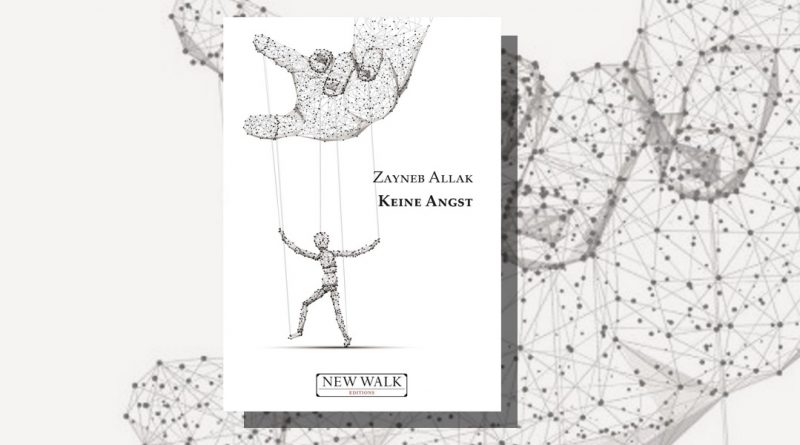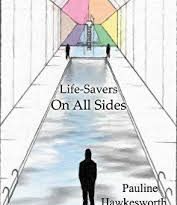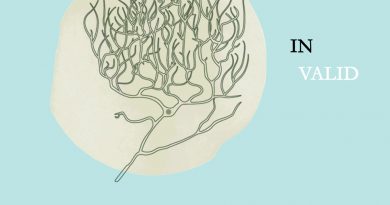Keine Angst by Zayneb Allak
-Reviewed by Matthew Hacke-
According to Critical Poetics Online, Zayneb Allak’s academic research “explores ways in which writing spiders into being.” This delineation of writing is inspired by Jacques Derrida. It imagines how, when read, the piece starts from a point of concealment. As meaning is teased out, it gradually leaves this hiding place. This process of comprehension is not linear. Rather, as meaning distorts and becomes more complex as one reads further, writing-as-a-spider imagines the text in a state of spasmodic movement. It zig-zags towards the reader instead of bee-lining, constantly changing shape and trajectory.
In this sense, it’s interesting to consider how Allak’s debut pamphlet, Keine Angst, takes lead from the author’s critical lens. Keine Angst is intensely personal, not so by assuming confessional form, more by how it sculpts human figures with detail and depth. As biographical writing is seldom straightforward, the psyche visited in Keine Angst often evade categorisation. In the poems, various personae open themselves, but Allak makes certain that the reader’s assumptions are regularly deluded. Volta in the concluding lines is a common trope in Keine Angst, from ironcast statues imagining movement in ‘Ancestors’ to the burst of passion and hope at the close of an otherwise futile “Last Christmas.” Whilst such structures are strongly felt, the tone and content of each poem differs substantially. Overall, the collection is a strong debut work, that illustrates its themes with nuance and sharpness.
The landscapes and characters in Allak’s collection are not as they seem. An uncanny energy fuels much of the work, and many of the poems plunge the liminal space between difference and familiarity. This is deployed clearly in ‘Aisha,’ which draws a pregnant woman who has been inculcated into a fundamentalist sect. “Far from home” in both distance, and ideology, the woman is still familiar; “but your vowels are pure South London.” Via one interpretation, this challenges the reader. The ‘but,’ a pivot between feared otherness and colloquial commonality, reflects on the panic and confusion in the UK that came with the realisation that a new generation of jihadists were from disenfranchised areas of Britain, rather than abroad. Simultaneously, this contrast illustrates the woman’s own predicament. It suggests uprootedness, as the persona struggles to find somewhere to express, and be herself freely. Allak asks of the woman’s London home; “did no one listen to you there?” By drawing strong links between disparate locales and identities, Allak traverses issues of alienation and oppression with great elegance and ease. This is indicative of the collection at its best; intricately constructed, and able to engage with complex subject matter without losing clarity of expression.
As distance foregrounds ‘Aisha’, and motion is the crux of writing-as-a-spider, it’s clear that movement underpins the style, and content of Keine Angst. The collection is a rumination on journeys; and the (dis)comfort found in travel with no clear destination in sight. Despite the inherent uncertainty of the subject matter, and the sense of personae being acted-upon rather than active in many of the poems, the collection has definite and tight structure. In terms of form, words are rarely wasted, and changes in tone are demarcated with clarity. Overall, this is welcome. The poems deal with ambiguity and volatile situations frequently, and a lack of robust form could make reading difficult. However, it might benefit the author in future works to experiment with a more fluid writing style. These rigid structures and patterns, with changes in mood and narrative progression signalled obviously by line breaks, made some poems feel slightly formulaic – when in fact the themes and content are incredibly innovative. Still, Allak’s precise form works perfectly in the majority of the collection. In the longer poems, such as ‘Family Reunion, March 2001’ and ‘The Prophet’s Daughter’, verses are partitioned and enjambed effectively, allowing rhythm to flow smoothly. This ultimately keeps the reader’s attention rapt.
In sum, Keine Angst is a sophisticated debut work, that has clear thematic and formal conceits that are marshalled effectively. Dealing with themes of home, alienation, and identity, Allak creates nuanced pieces that are poignant and thought-provoking. In a cosmopolitan world that is becoming ever more divided and claustrophobic, the insight offered by Keine Angst is very timely indeed.





